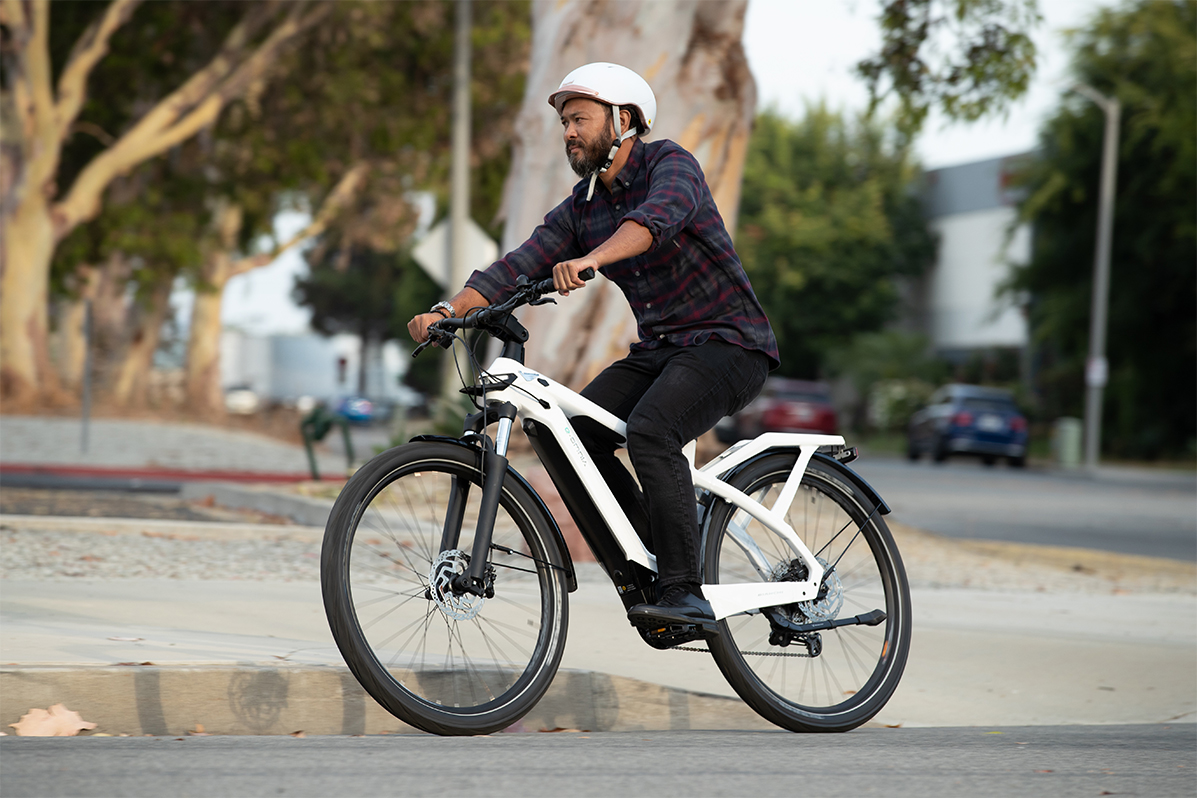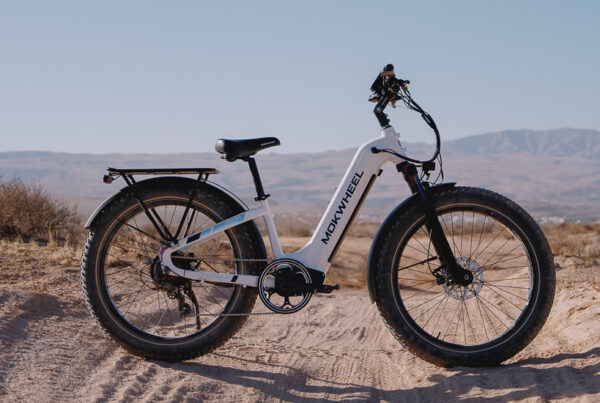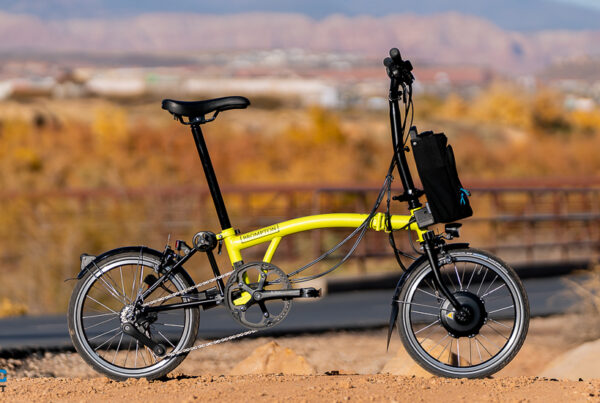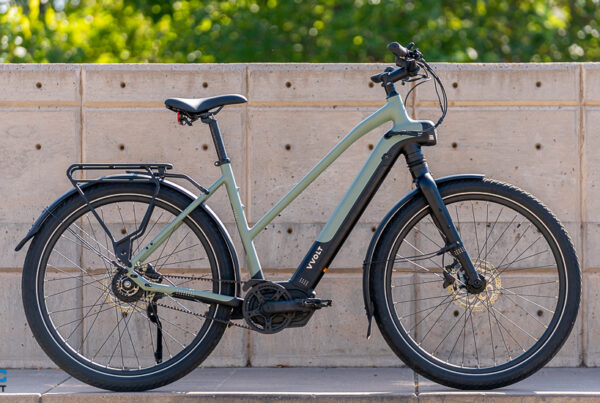Bianchi’s new E-Omnia T Type commuter e-bike in white.
Photo Credit: Courtesy Bianchi
So, to get to the bottom of the “cheating” question, Electric Bike Report went to a brand that, for the last 133 years, has been an influential member of cycling’s upper echelon — Italian bike manufacturer Bianchi.
With three Tour de France wins (and a team currently riding their bikes in the 2021 race), Bianchi’s U.S. presence has been defined by high-performance celeste green racing bikes with eye-watering price tags — they’re the bike world’s version of exotic Italian sports cars.
But in late June, Bianchi unveiled seven new e-bikes to the U.S. market including it’s E-Omnia family, a triad of e-bikes made of two commuters and an eMTB. Bianchi USA’s CEO Pat Hus said the new bikes — and their E-Omnia name, which roughly translates from Latin to “E-Everything” — is the first move in a new direction for the U.S. arm of the storied bike company.
“We have to be in the e-bike space,” Hus said during the E-Omnia premier at the Marconi Automotive Museum in California. “There’s just not a choice, and North America has been reluctant to try new things.”

Bianchi unveiled its e-bike lineup to the U.S. market at a premier on June 28 at the Marconi Automotive Museum in Tustin, Calif.
Photo Credit: Courtesy Bianchi
Hus told a crowd of cycling press and dealers during the E-Omnia event that in three years he expects e-bikes to make up 40 percent of Bianchi USA’s sales. Road bikes, he added, currently dominate that figure at 90 percent. In the next six months, he told EBR, Bianchi has at least 12 new e-bikes they plan on bringing to the U.S.
But are e-bikes cheating?
“I’ve got an e-bike and I ride it when I want to go to the market or I want to go do something, but I’m out there on my (analog) road ride or on my mountain bike because I enjoy it,” Hus said. “I don’t feel like I’m cheating when I’m on my e-bike; there’s just sometimes I don’t want to ride a regular bike.”
Hus articulates here a point that many cycling enthusiasts seem reluctant to accept; that e-bikes aren’t here to replace traditional bicycles, but rather complement them in areas that they’ve never really caught on.
Source link








